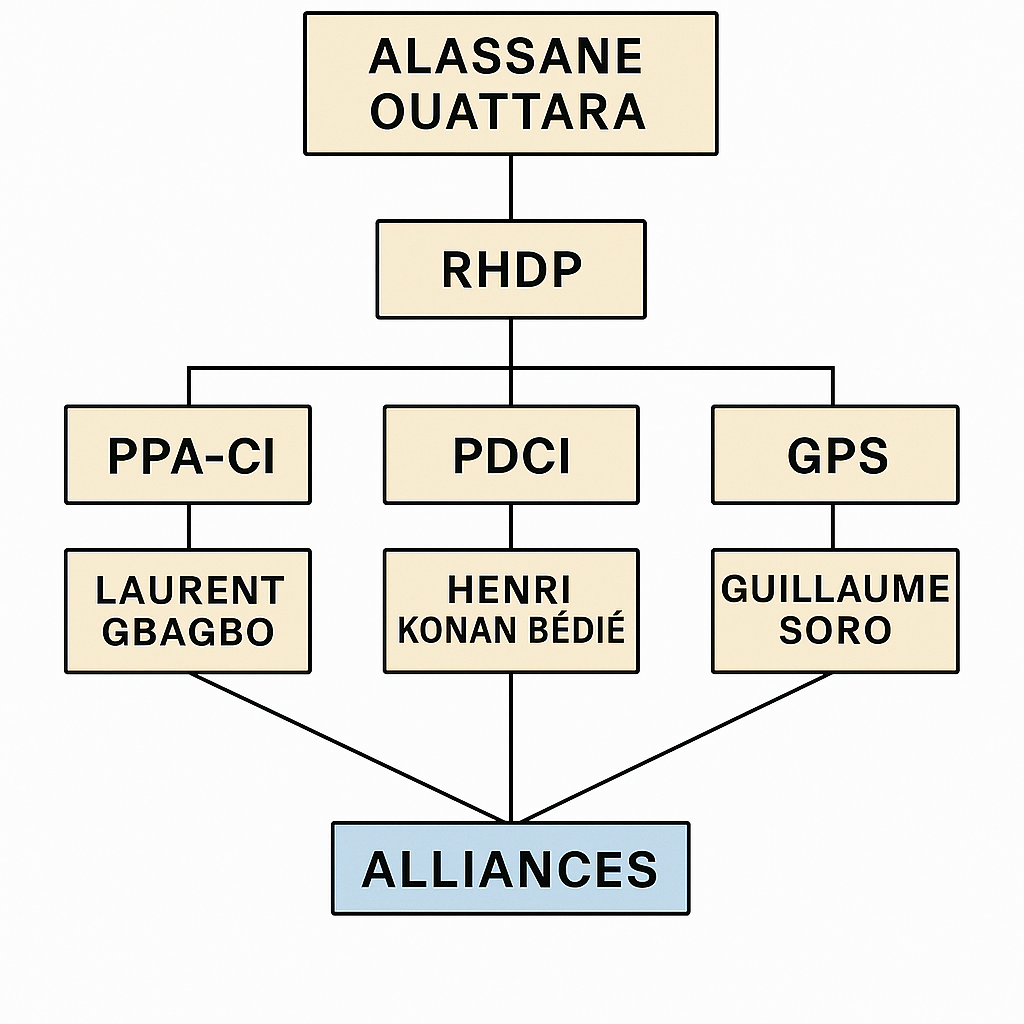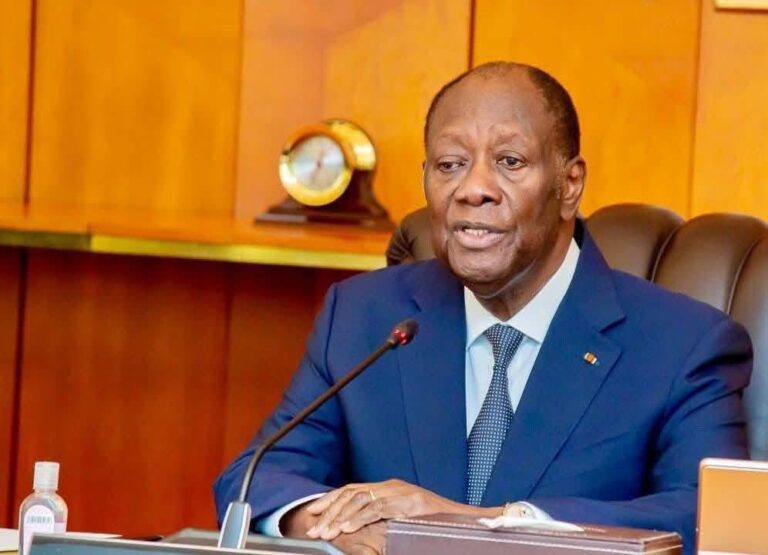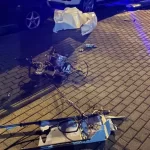President Alassane Ouattara’s reported intention to seek a fourth term in Côte d’Ivoire has reignited domestic and international concerns about the erosion of democratic norms, the resurgence of ethnic and regional tensions, and the potential destabilization of a country that only recently emerged from a decade of violent political conflict. While Ouattara and his supporters argue continuity is necessary for economic stability, critics see this move as a dangerous step toward authoritarianism.
II. Constitutional Background and Legality
Ouattara’s previous re-election in 2020 was already controversial. The 2016 Constitution limited presidents to two five-year terms. However, a legal loophole—based on the adoption of the new Constitution—allowed Ouattara to reset the clock and run for what he termed a “first term under the new Constitution.” A fourth term would therefore be legally dubious and likely to provoke domestic unrest and international condemnation.
III. Threats to Democracy
- Constitutional Manipulation: Ouattara’s continued use of constitutional reinterpretation undermines democratic legitimacy and sets a dangerous precedent for future leaders.
- Electoral Credibility at Risk: Opposition parties, civil society organizations, and youth movements increasingly view the electoral system as rigged. If the electoral commission is not reformed or monitored, the democratic process could lose all credibility.
- Suppression of Opposition: The 2020 elections saw key rivals like Laurent Gbagbo and Guillaume Soro disqualified or exiled. A fourth-term campaign may be accompanied by renewed crackdowns on dissent.
IV. Risks of Ethnic and Regional Tensions
- North vs. South Divide: Ouattara’s power base lies in the Muslim-majority north, while his opponents are strongest in the Christian-majority south. This regional and religious polarization could deepen with another contested election.
- Resentment Among Youth: The majority of the Ivorian population is under 25. Many young people demand change and generational renewal. A fourth term may alienate this demographic, leading to street protests or even urban unrest.
- Return of Militia Politics: A crisis of legitimacy could revive pro-opposition militias or lead to the formation of new armed groups, particularly in regions like the west where past conflicts were most intense.
V. Who Could Support Ouattara?
- RHDP (Rassemblement des Houphouëtistes pour la Démocratie et la Paix): His ruling coalition is likely to remain loyal, especially the core economic and administrative elites who benefit from the status quo.
- Military and Security Services: Ouattara has invested heavily in restructuring the military and intelligence sectors. Their loyalty is a cornerstone of his ability to retain power.
- Economic Elite and Foreign Investors: Some segments of the private sector, particularly those with ties to French multinationals or regional banks, may prefer continuity for stability’s sake, despite the risks to political freedoms.
VI. Chances of Winning Elections
If Ouattara runs, he stands a strong chance of winning—on paper. His party controls key levers of state power, and the opposition remains fragmented. However:
- Opposition Realignment is Possible: Figures like Gbagbo, Soro, or even new-generation leaders could join forces and mobilize significant support if the public perceives the election as a make-or-break moment for democracy.
- Urban Unrest Could Disrupt Voting: Widespread protests or violence, especially in Abidjan and Bouaké, could undermine or delay the electoral process, leading to a political crisis.
VII. Possible Alliances and Rivalries
- Laurent Gbagbo (PPA-CI): A potential opposition leader with deep support among southern populations. His return has already shifted the political balance, though his age and past crimes weigh on his legitimacy.
- Henri Konan Bédié’s PDCI: Despite Bédié’s death in 2023, the party remains a significant force. If it allies with Gbagbo’s base or Soro’s younger supporters, it could become a formidable electoral block.
- Guillaume Soro (GPS): Still in exile, but his digital-savvy support base and strong northern following could turn the tables—especially if he returns in a dramatic fashion.

VIII. Role of Foreign Actors
- France: Paris maintains strong economic interests and historical ties. While officially supporting democratic norms, it may tacitly back Ouattara if it ensures stability and business continuity.
- ECOWAS: The regional bloc has shown a mixed record in defending term limits (supporting democracy in Niger and condemning coups elsewhere), but may hesitate to confront Ouattara forcefully due to his regional influence.
- United States and EU: Likely to express concerns and call for free and fair elections, but unlikely to impose sanctions unless serious violence erupts.
- China and Turkey: Focused on economic diplomacy; likely to remain neutral and prioritize infrastructure and trade agreements.
IX. Scenarios and Recommendations
- Scenario A: Ouattara Wins Amid Disputed Election
- Leads to protests, low legitimacy, and international criticism.
- Government responds with crackdowns, possibly reigniting internal conflict.
- Scenario B: Strong Opposition Coalition Forces Runoff
- Demonstrates democratic resilience but risks instability during runoff period.
- Scenario C: Ouattara Withdraws Under Pressure
- Smooth transition to a chosen successor (e.g., PM Patrick Achi).
- Likely to preserve regime continuity without personal involvement of Ouattara.
Recommendations
- ECOWAS and African Union must issue clear statements on term limits.
- Civil society and international donors should support independent electoral monitoring.
- Internal opposition must unite around democratic principles, not personal rivalries.
- Youth engagement and civic education campaigns are crucial to avoid apathy or violence.
X. Conclusion Ouattara’s pursuit of a fourth term would severely test Côte d’Ivoire’s fragile democratic institutions. While legal arguments may be constructed to support such a move, the broader political and social consequences could undo years of post-conflict reconstruction. The upcoming election is not merely about leadership—it’s about the future direction of Ivorian democracy.
If President Alassane Ouattara chooses to run for a fourth term in Côte d’Ivoire, several ethnic tensions could be reignited due to historical, regional, and political factors. Here are the key tensions and their causes:
1. North–South Divide
- Background: Ouattara is from the north (Dioula ethnic group), while historically, power resided in the south (Baoulé and Bété groups).
- Tension: His continued rule risks reinforcing the perception that northern elites are monopolizing power and economic resources.
- Risk: Southern ethnic groups may feel further marginalized, leading to political unrest or violent protests in Abidjan, Gagnoa, and Yamoussoukro.
2. Dioula vs. Bété/Guéré
- Ouattara’s base: Dioula (northern Muslim community).
- Opposition strongholds: Bété (Laurent Gbagbo’s ethnic group) and Guéré in the west.
- Tension: Memories of the 2010–2011 post-election conflict—when these groups clashed—remain fresh.
- Risk: Gbagbo’s potential return to politics could polarize communities and reignite past grievances.
3. Rising Anti-Fulani Sentiment
- Context: Increasing jihadist activity in West Africa has led to suspicion of Fulani communities, often (unfairly) associated with Islamist groups.
- Risk: If Fulani populations (often Muslim and seen as allies of the north) are perceived as supporting Ouattara, local ethnic groups may scapegoat or attack them, particularly in the west.
4. Land Disputes in the West
- Historical Grievance: Long-standing conflicts between indigenous groups (like Wé or Guéré) and northern migrant communities (many of whom support Ouattara) over land and resource access.
- Risk: A new Ouattara candidacy could trigger renewed violence in areas like Duékoué, where land disputes often turn ethnic.
5. Youth Radicalization and Ethnic Militias
- Trigger: Opposition leaders may mobilize youth along ethnic lines to resist a perceived power grab.
- Danger: The proliferation of informal militias (as seen in 2020 protests) could result in inter-ethnic clashes, particularly in urban areas and contested regions.
Conclusion: A fourth term bid by Ouattara risks reigniting deep-rooted ethnic tensions. These divisions—historical, regional, and political—could destabilize the fragile balance in Côte d’Ivoire and undermine the democratic process. Proactive dialogue and inclusive governance would be essential to preventing ethnic violence.




